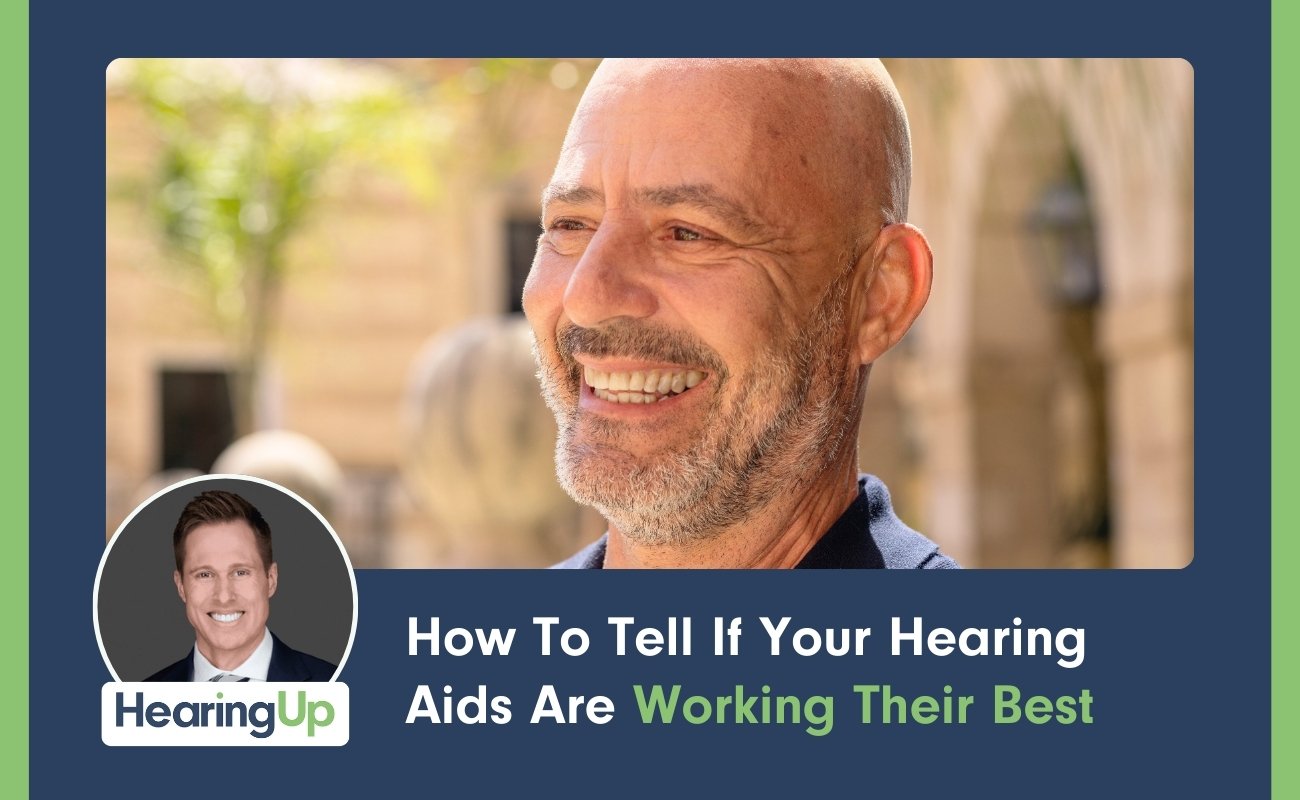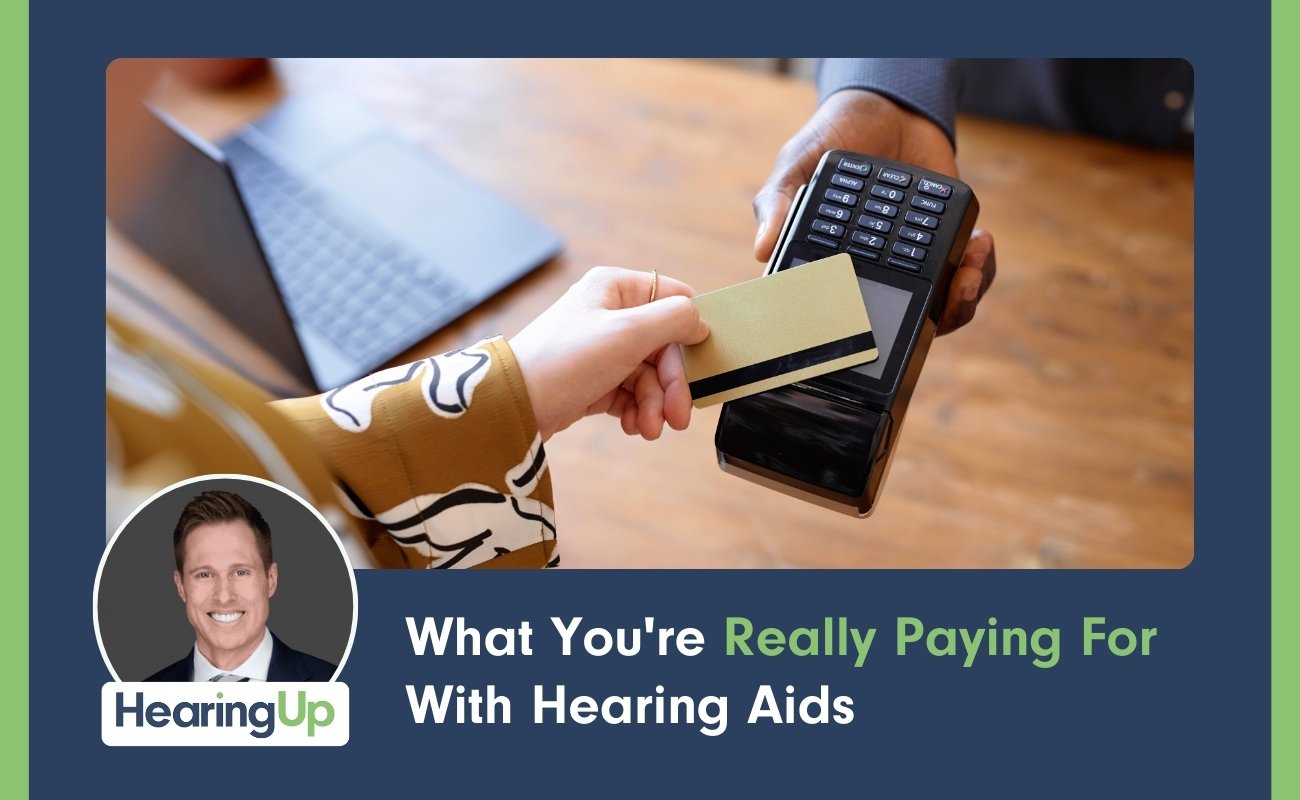For generations, the use of hydrogen peroxide as a home remedy has been passed down. This inexpensive and easily accessible solution has been recommended for everything from disinfecting wounds to lightening hair. One of the most common uses, however, has been for the removal of earwax. But, should you really be using hydrogen peroxide to clean your ears? The simple answer is no.
"High concentrations of hydrogen peroxide at 10% or above are corrosive even to your skin, and considering that your entire ear canal all the way down to and including your eardrum is comprised of skin, putting hydrogen peroxide inside of your ear canal at best is an irritant, and at worse can be corrosive." - CDC
If you've ever used hydrogen peroxide to clean a cut, you've likely seen it bubble up on contact. This bubbling action, which many believe helps to break down earwax, is actually the hydrogen peroxide reacting with your skin. While this may not be a problem on a superficial wound, it can be damaging when it occurs in the sensitive skin of the ear canal.
Hydrogen peroxide can cause skin irritation, inflammation, and even burns when used in concentrations of 10% or higher. But, even at lower concentrations, it can still cause discomfort, itching, and even temporary hearing loss. The use of hydrogen peroxide can also result in residual bubbles inside the ear canal, which can make it difficult for doctors to examine the inner ear.
Aside from the potential harm that it can cause, hydrogen peroxide is also not an effective earwax removal solution. While the bubbling action may create the illusion that the earwax is being broken down, this is not the case.
"Those bubbles that you hear when you pour inside of your ear that a lot of people think is breaking down earwax doesn't do anything. It is basically a placebo effect."
In fact, hydrogen peroxide can often make the problem worse. Instead of removing the earwax, it can cause it to soften and build up more, leading to worse hearing after the treatment.
So, if hydrogen peroxide isn't the answer, what is? The safest and most effective way to clean your ears is to visit a certified hearing professional. These professionals have the knowledge, skills, and equipment needed to safely and effectively remove earwax.
"The safest treatment for clogged ears is a visit to a certified hearing professional." - Dr. Cliff Olson
Over-the-counter ear drops are also a safer and more effective alternative to hydrogen peroxide. However, it's essential to always follow the manufacturer's instructions or your doctor's advice when using these products.
One product that is highly recommended by professionals is Earwax MD from Eosera. This solution is made up of water, glycerin, sodium bicarbonate, and potassium bicarbonate, all of which are safe for use in the ear. It has been clinically proven to safely and effectively dissolve earwax in as little as 15 minutes.
"Earwax MD's ingredients of water, glycerin, sodium bicarbonate, and potassium bicarbonate are clinically proven to safely and effectively dissolve ear wax in as little as 15 minutes." - Dr. Cliff Olson
In comparison to hydrogen peroxide and other over-the-counter earwax removal solutions, Earwax MD is far more effective. In fact, time-lapse videos have shown that while hydrogen peroxide simply bubbles, Earwax MD breaks down even the most stubborn earwax, making it easy to remove.
As an audiologist and founder of HearingUp, I discourage the use of hydrogen peroxide for earwax removal. Instead, I recommend individuals to seek professional guidance and to use safe, effective products like Earwax MD.
"Just make sure that whatever you use to clean earwax out of your ears, that it's safe and that it's effective, and this means no more hydrogen peroxide no matter what you've heard." - Dr. Cliff Olson
Remember, hearing health is not something to take lightly. It plays a critical role in how we interact with the world around us. So, stop using hydrogen peroxide to clean your ears, and start taking the right steps towards maintaining your hearing health.
For professional help with your ear health, visit HearingUp, a network of independent hearing care providers committed to implementing best practices in hearing aid fittings. Each provider has been personally vetted by me to ensure the highest standard of care.
You're still using hydrogen peroxide to clean your ears?
When I was in high school science class, our teacher taught us how to clean earwax out of our own ears using hydrogen peroxide and blasting wax out of our ears using a syringe like this one. Now, I want you to imagine the amount of chaos that ensued when we had 30 high schoolers trying to perform a procedure that is typically reserved for medical professionals. Not only did we not get any earwax out, but we ended up spraying hydrogen peroxide all over the place, getting it on our skin, and even in our eyes, not to mention some students actually got sick because the hydrogen peroxide was too cold, and in case you were unaware, anytime that you put something cold into one of your ears, it can make you dizzy. That's why in this video, I'm gonna show you why you should never be using hydrogen peroxide to clean earwax out of your own ears and what you should be doing instead.
Now, it is not uncommon for people to think that hydrogen peroxide is a good way to remove earwax. After all, hydrogen peroxide has been a household remedy for decades and can be used for a variety of different things. At some point, even doctors started recommending hydrogen peroxide as a disinfectant for a cut, and yes, even as a earwax removal solution. However, now doctors are starting to discourage the use of hydrogen peroxide as a household remedy because in high concentrations it can be dangerous and for earwax removal, it's not even that effective. According to the Centers for Disease Control and Prevention, otherwise known as the CDC, hydrogen peroxide, even in low concentrations, can be dangerous when coming in contact with your eyes, nose and throat, and if not used carefully, can be unsafe. And be careful because the CDC also says that high concentrations of hydrogen peroxide at 10% or above are corrosive even to your skin, and considering that your entire ear canal all the way down to and including your eardrum is comprised of skin, putting hydrogen peroxide inside of your ear canal at best is an irritant, and at worse can be corrosive.
But more important, hydrogen peroxide does not do a good job at removing earwax. Those bubbles that you hear when you pour inside of your ear that a lot of people think is breaking down earwax doesn't do anything. It is basically a placebo effect. Now, I know what you're thinking. You're like, okay, Cliff, you're an audiologist. Of course, you're telling me not to try to remove my own earwax with hydrogen peroxide because you want me to come into your clinic so you can charge me money to do it. Well, that is not what I'm telling you because nothing would make me happier than you removing your own earwax, so I don't have to do it anymore. All right, now that we're on the same page, what should you be using instead of hydrogen peroxide to remove earwax out of your own ears from the comfort of your own home that is both safe and effective?
Well, some professionals may recommend a typical carbonide peroxide solution in concentrations that are safe to use inside of your ears that can be picked up at your local pharmacy. However, I always recommend that my patients use Earwax MD from Eosera, today's video sponsor, and I'll tell you why. I started recommending Earwax MD five years ago inside of my clinic because of how disappointed I was in the effectiveness of hydrogen peroxide and these other carbonide peroxide solutions that I had previously recommended. Earwax MD's ingredients of water, glycerin, sodium bicarbonate, and potassium bicarbonate are clinically proven to safely and effectively dissolve ear wax in as little as 15 minutes. Just check out this time lapse video of Earwax MD compared to the leading brand of over-the-counter earwax removal drops that use carbonide peroxide. As you can see, the carbonide peroxide solution creates bubbles, but it hardly did anything to dissolve the earwax.
The Earwax MD, on the other hand, is extremely effective in breaking down even the most stubborn earwax, so it can be easily removed from your ears. After you've let Earwax MD do its job to break down the earwax, all you have to do is flush out your ears with warm water using a simple bulb syringe or the Wax Blaster MD. Not only is Earwax MD extremely effective, but it is also safe to use. Chances are, if you're watching this video, you are strongly considering using hydrogen peroxide to clean the wax out of your ears, or you tried it before and it didn't work, or even worse, you tried it before, but you had a bad reaction to it. Well, as an audiologist who removes earwax all of the time inside of my clinic, I'm here to tell you to not use hydrogen peroxide anymore because you have safe and even more effective options out there to do it. Just make sure that whatever you use to clean earwax out of your ears, that it's safe and that it's effective, and this means no more hydrogen peroxide no matter what you've heard online.
You're still using hydrogen peroxide to clean your ears?
When I was in high school science class, our teacher taught us how to clean earwax out of our own ears using hydrogen peroxide and blasting wax out of our ears using a syringe like this one. Now, I want you to imagine the amount of chaos that ensued when we had 30 high schoolers trying to perform a procedure that is typically reserved for medical professionals. Not only did we not get any earwax out, but we ended up spraying hydrogen peroxide all over the place, getting it on our skin, and even in our eyes, not to mention some students actually got sick because the hydrogen peroxide was too cold, and in case you were unaware, anytime that you put something cold into one of your ears, it can make you dizzy. That's why in this video, I'm gonna show you why you should never be using hydrogen peroxide to clean earwax out of your own ears and what you should be doing instead.
Now, it is not uncommon for people to think that hydrogen peroxide is a good way to remove earwax. After all, hydrogen peroxide has been a household remedy for decades and can be used for a variety of different things. At some point, even doctors started recommending hydrogen peroxide as a disinfectant for a cut, and yes, even as a earwax removal solution. However, now doctors are starting to discourage the use of hydrogen peroxide as a household remedy because in high concentrations it can be dangerous and for earwax removal, it's not even that effective. According to the Centers for Disease Control and Prevention, otherwise known as the CDC, hydrogen peroxide, even in low concentrations, can be dangerous when coming in contact with your eyes, nose and throat, and if not used carefully, can be unsafe. And be careful because the CDC also says that high concentrations of hydrogen peroxide at 10% or above are corrosive even to your skin, and considering that your entire ear canal all the way down to and including your eardrum is comprised of skin, putting hydrogen peroxide inside of your ear canal at best is an irritant, and at worse can be corrosive.
But more important, hydrogen peroxide does not do a good job at removing earwax. Those bubbles that you hear when you pour inside of your ear that a lot of people think is breaking down earwax doesn't do anything. It is basically a placebo effect. Now, I know what you're thinking. You're like, okay, Cliff, you're an audiologist. Of course, you're telling me not to try to remove my own earwax with hydrogen peroxide because you want me to come into your clinic so you can charge me money to do it. Well, that is not what I'm telling you because nothing would make me happier than you removing your own earwax, so I don't have to do it anymore. All right, now that we're on the same page, what should you be using instead of hydrogen peroxide to remove earwax out of your own ears from the comfort of your own home that is both safe and effective?
Well, some professionals may recommend a typical carbonide peroxide solution in concentrations that are safe to use inside of your ears that can be picked up at your local pharmacy. However, I always recommend that my patients use Earwax MD from Eosera, today's video sponsor, and I'll tell you why. I started recommending Earwax MD five years ago inside of my clinic because of how disappointed I was in the effectiveness of hydrogen peroxide and these other carbonide peroxide solutions that I had previously recommended. Earwax MD's ingredients of water, glycerin, sodium bicarbonate, and potassium bicarbonate are clinically proven to safely and effectively dissolve ear wax in as little as 15 minutes. Just check out this time lapse video of Earwax MD compared to the leading brand of over-the-counter earwax removal drops that use carbonide peroxide. As you can see, the carbonide peroxide solution creates bubbles, but it hardly did anything to dissolve the earwax.
The Earwax MD, on the other hand, is extremely effective in breaking down even the most stubborn earwax, so it can be easily removed from your ears. After you've let Earwax MD do its job to break down the earwax, all you have to do is flush out your ears with warm water using a simple bulb syringe or the Wax Blaster MD. Not only is Earwax MD extremely effective, but it is also safe to use. Chances are, if you're watching this video, you are strongly considering using hydrogen peroxide to clean the wax out of your ears, or you tried it before and it didn't work, or even worse, you tried it before, but you had a bad reaction to it. Well, as an audiologist who removes earwax all of the time inside of my clinic, I'm here to tell you to not use hydrogen peroxide anymore because you have safe and even more effective options out there to do it. Just make sure that whatever you use to clean earwax out of your ears, that it's safe and that it's effective, and this means no more hydrogen peroxide no matter what you've heard online.

HRV objectively measures stress affecting tinnitus by tracking autonomic balance, enabling data-driven treatment adjustments via Modern Tinnitus Basecamp.
Read More
Three methods confirm hearing aid performance: test box for specs, Real Ear Measurement for accuracy, and outcome assessments for effectiveness.
Read More.jpg)
Daily shower water flushing helps prevent earwax buildup more effectively and affordably than products, though impacted wax needs professional removal.
Read More
Hearing aid costs cover technology, expert services like Real Ear Measurement and fitting, ongoing support, and admin fees—justifying the investment.
Read More
Four evidence-based tinnitus treatments help patients achieve habituation through different neurological and psychological approaches.
Read More
Tinnitus amplifies stress through control loss, uncertainty, focus problems, communication challenges, and sleep disruption.
Read More